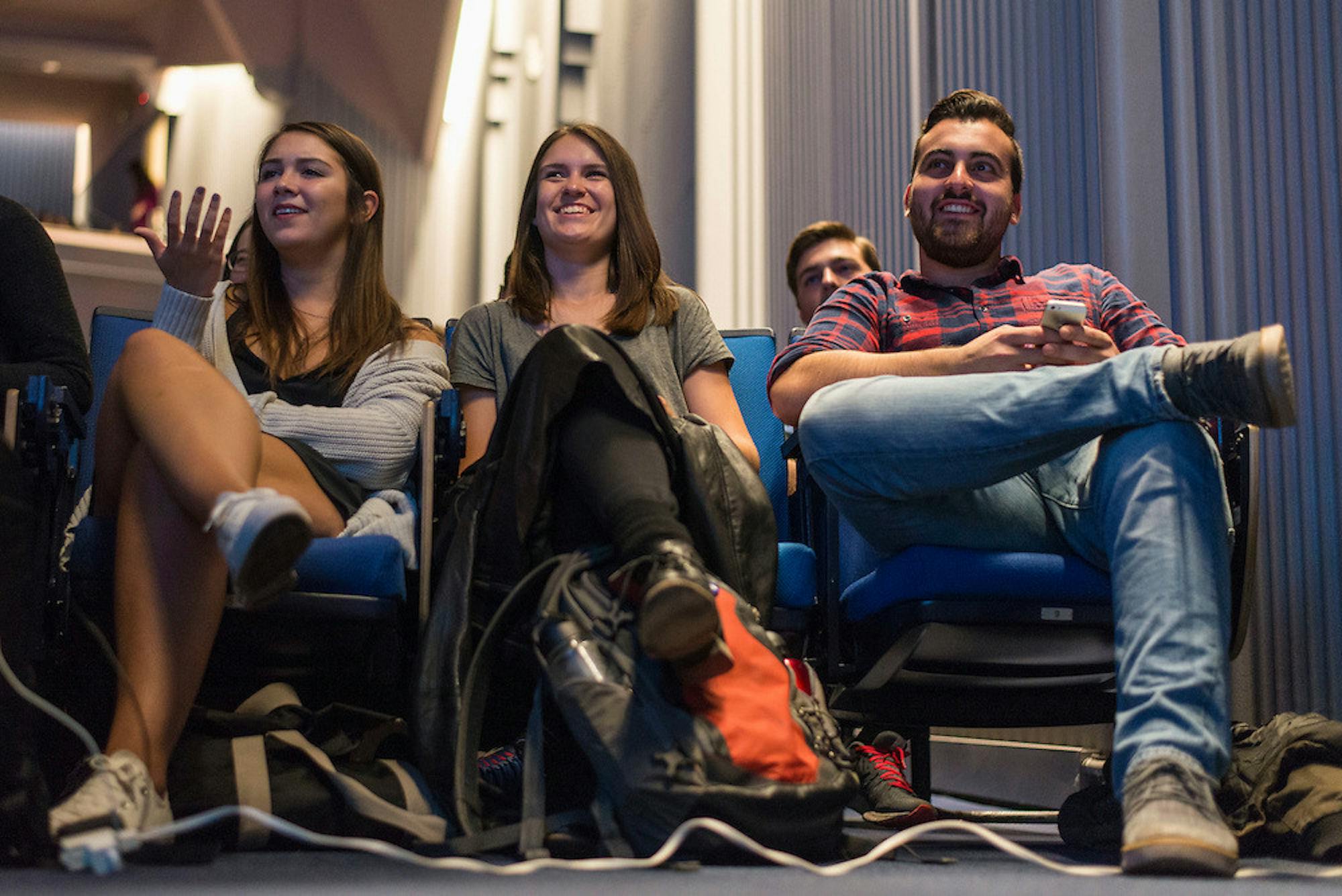The first event in a series of post-debate dialogues was held on Sept. 27 by the Office of the Provost and Senior Vice President, Tisch College, the University Chaplaincy and the Office of Students Affairs to give students an opportunity to discuss their personal concerns and reactions to the upcoming 2016 presidential election, according to a message sent to the community by Chief Diversity Officer and Associate Provost Mark Brimhall-Vargas.
Brimhall-Vargas, who also led the event, said the dialogue’s purpose was to allow people to engage with the election by doing more than simply registering to vote or being informed.
“[The presidential debate on Monday] was people talking at you, and people kind of watching a national spectacle,” he said, addressing the crowd. “Tonight we’re really going to do something that’s about you and your relationship to this process.”
The dialogue took the form of small group discussions led by student and faculty facilitators. The conversations took an intentionally structured form, due to the difficulty students often have talking about politics, according to Brimhall-Vargas.
“Some people said, 'Wouldn’t it be easier to open it up to just let people talk?' Our response is, if that worked we already would be doing it,” he said. “The point is to think about, 'How do I get information from people as opposed to making sure my point is getting across?'”
The discussion was broken into three broad questions. For each question, participants were asked to reflect and then each respond to the question without interrupting one another. Afterward, participants would comment on what they heard, converse openly and ask “questions of curiosity.” These questions were designed as an opportunity for participants to genuinely learn more about what someone had said without criticizing it, according to Brimhall-Vargas.
Before the dialogue, participants and the event’s leaders also helped establish ground rules for discussion. Some of these rules included making sure each person had an equal chance to speak, giving people the chance to clarify their statements and granting people confidentiality so that after the event people could not be tied to their statements.
The three questions that guided the discussion were: “What hopes and fears has the presidential election tapped into you?”, “What concerns you the most and what experiences shape your viewpoint on certain issues?” and “Describe a time when you felt misunderstood talking about the presidential election or avoided talking about the current presidential election because you thought you would be misunderstood.”
Participants reflected on these questions often by describing their concerns about polarized political dialogue in this country.
“[This election has made me realize] there’s a whole population who think very differently than me,” one student said. “How can we co-exist while achieving the goals that we want?”
Discussants also expressed worries about the challenges of maintaining free and open political discussion on college campuses like Tufts.
“Universities have a very liberal-progressive attitude that silences conservatives and Republicans,” another participant said. “When someone says that they’re Republican, [others] assume a bunch of other things.”
Additionally, students reflected on their own attempts at political discussions. One participant said that she was sometimes afraid of stating her positions because she could never be sure if she was informed enough to defend them.
“You don’t want to create this uproar when it’s not really worth it; it’s hard to defend your side," she said. "There’s so much we don’t know.”
After the event, participants were provided with a sheet to give their feedback. Responses from students are very important to the future of the event, Brimhall-Vargas said.
“We do not yet have a firm sense of how Tufts as a community wants to engage topics of politics,” he said. “We are intentionally trying something that might not work.”
According to Brimhall-Vargas, facilitators said participants appreciated having a space in which they could openly discuss the political season.
“Several facilitators indicated that their participants said that this was the first time they had an opportunity to really engage issues in a way that made them feel welcome,” Brimhall-Vargas told the Daily in an email after the event.
Senior Matthew Bicakci, who agreed to talk to the Daily after the discussion, admitted that the free burritos provided at the discussion were his main reason for attending. However, he said he was pleasantly surprised how the event unfolded.
“I thought it was going to be a couple [of] people talking at us, informing us, some political fact-checking from last night. It was different; it’s actually something that I think should be around more often,” he said, noting that he especially liked how ground rules were laid down before the discussion.
However, Bicakci said he wished the discussion was more rooted in fact than personal experience with politics.
“I would like to see more of a focus on the actual facts, because it was more of a, 'what was your experience at the debate or about some of the issues,'” he said.
Student facilitator and sophomoreGregory Kulchyckyj said the event exceeded his expectations in the “genuine curiosity” of the participants, but that he hopes future events draw a more politically diverse crowd.
“There was not as much diversity as we had hoped, but we knew this going in and we hope that with [the] next ... there’ll be more Republicans and Independents," he said. "We also really want to emphasize non-political science students.”
The names of participants are not included in this article out of respect for the event’s policy of confidentiality.
Students reflect on personal political experience in post-debate dialogue






